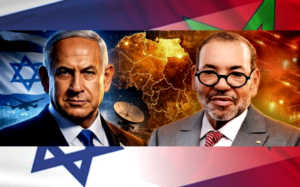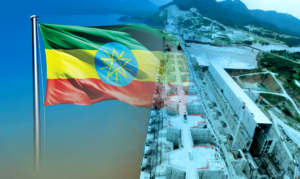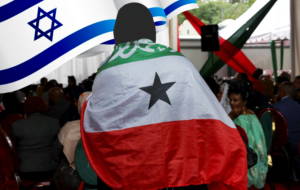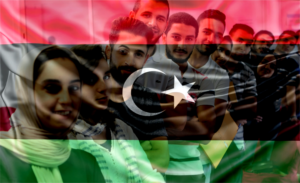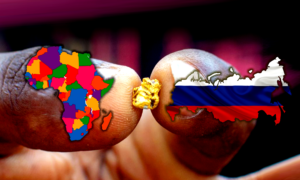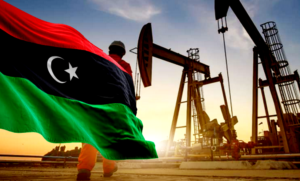Can Africa’s Geopolitical Powerhouse – Egypt, bring Peace to Gaza as she Steps into the negotiation
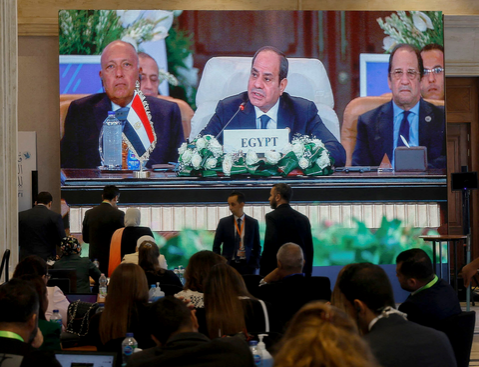
Cairo is once again at the center of frantic diplomacy. As war-weary families in Gaza struggle through another cycle of bombardment and deprivation, Egypt has emerged as a critical mediator in efforts to halt the bloodshed. This week, President Abdel-Fattah El-Sisi hosted Qatari Prime Minister Sheikh Mohammed bin Abdulrahman Al-Thani in Cairo, signaling intensified regional coordination to secure a ceasefire between Israel and Hamas.
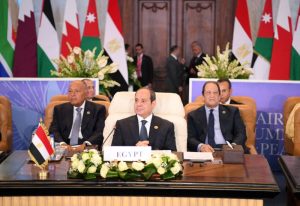
The stakes could not be higher. Gaza’s humanitarian catastrophe deepens daily, with over two million residents enduring shortages of food, medicine and shelter. For Gaza people, every diplomatic breakthrough, or setback, translates into a question of survival.
Prefacing the possibility of a breakthrough, diplomatic sources have confirmed that Hamas has indicated its willingness to accept a ceasefire in Gaza, provided that Israel agrees to certain concessions, including the release of captives and easing of border restrictions. Israel, while wary of negotiating under fire, faces mounting international pressure to allow humanitarian access and prevent the conflict from spilling across the region.
Egypt, with its long-standing role as a mediator in Palestinian-Israeli conflicts, is uniquely positioned. The Rafah crossing, Gaza’s main window to the outside world, lies under Egyptian control. This makes Cairo not only a diplomatic broker but also a gatekeeper for humanitarian relief.
“Egypt’s leverage is rooted in geography and history,” said a Middle East analyst based in Cairo. “No deal involving Gaza can bypass Egypt. Not just because of Rafah, but because Cairo has managed to talk to all sides when others cannot.”
From the view of the humanitarian lens, while leaders trade proposals behind closed doors, the toll on ordinary Gazans remains crushing. Hospitals are overwhelmed, medicines are scarce, and families crowd into temporary shelters that lack clean water and electricity.
“We are living day-to-day,” said Amal, a mother of three sheltering in central Gaza. “Every night we wonder if we will see the morning. What we hear about ceasefires feels far away, but we pray it comes.”
Humanitarian agencies warn that without a ceasefire, aid corridors cannot be safely established, raising the risk of famine and disease in a territory already under blockade for more than 15 years. The United Nations has described conditions as “unbearable,” urging both sides to prioritize civilian lives.
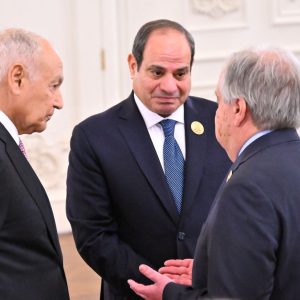
Egypt’s balancing act: her diplomatic role is not without risk. The El-Sisi government must balance its relations with Israel, its commitments to Arab solidarity and its own domestic concerns over security in the Sinai, where militant activity remains a threat. Hosting Qatar’s prime minister illustrates Cairo’s pragmatic approach, notwithstanding, working with partners who maintain direct lines to Hamas, even while keeping dialogue open with Washington, Tel Aviv and European capitals.
This balancing act reflects Egypt’s aspiration to remain a regional power broker. It also reveals the fragility of peace efforts, which can collapse under the weight of mistrust. Previous ceasefires have often unraveled quickly, leaving civilians to pay the price of political failure.
So, in a broader regional picture, the Gaza conflict resonates far beyond its borders. For Arab states, the suffering of Palestinians remains a rallying point for public opinion. For Israel, security concerns dictate every concession. For international powers, from the United States to the European Union, stabilizing Gaza is crucial to preventing wider regional escalation.
Africa, too, has a stake. Egypt’s involvement highlights the continent’s role in shaping Middle Eastern peace efforts, countering the perception that solutions are solely dictated by Washington or Gulf capitals. Analysts argue that Cairo’s leadership underscores Africa’s capacity to influence global diplomacy at critical junctures.
For now, there’s a glimmer of optimism, because the diplomatic flurry has given rise to cautious hope. If Egypt succeeds in securing a ceasefire, even a temporary one, it could provide the breathing space needed for humanitarian relief to reach Gaza’s civilians and open the door for broader negotiations.
But the urgency remains acute. Each delay costs lives, each airstrike or rocket pushes peace further from reach. For the people of Gaza, and families like Amal’s, the question is painfully simple – will the world’s negotiations come in time?
As Egypt and Qatar press forward in Cairo, the humanitarian crisis in Gaza remains the moral center of the conflict. Whether or not Egypt can deliver a breakthrough, its role as Africa’s geopolitical powerhouse demonstrates that the path to peace in Gaza may not only run through Washington or Tel Aviv, but also through Cairo.
For millions of Palestinians caught between war and politics, that path cannot open soon enough.


